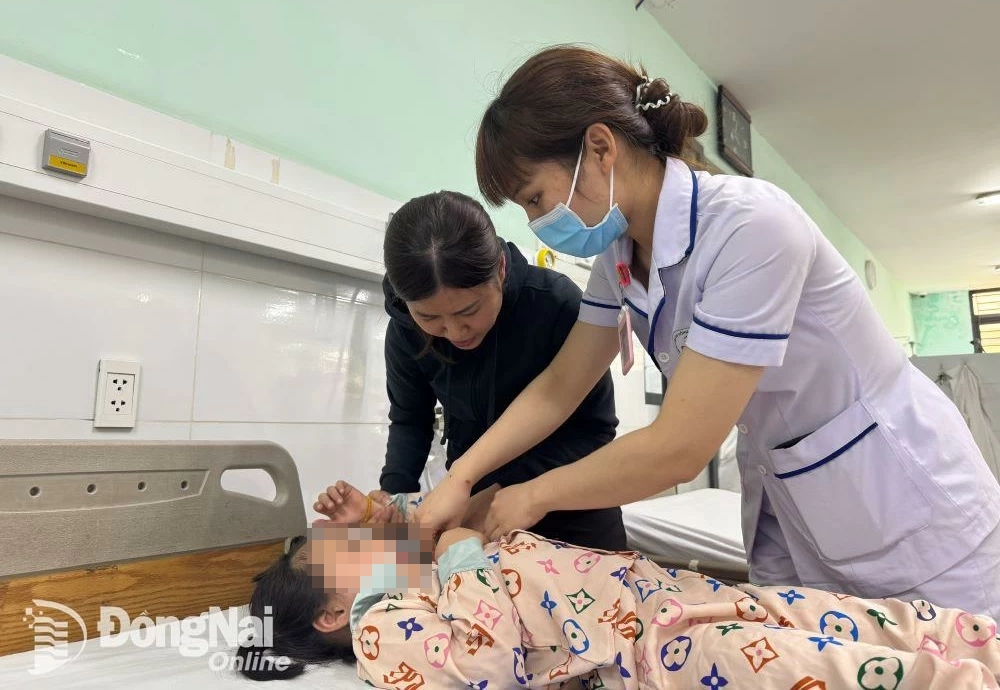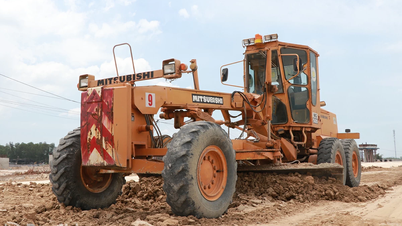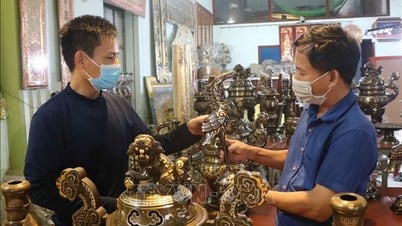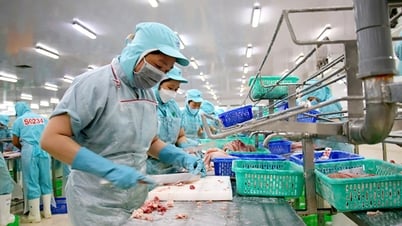 |
| Medical staff of the Examination and Emergency Department of Dong Nai Children's Hospital measure body temperature and provide emergency care to a child with high fever. Photo: Hanh Dung |
At Nam Dinh General Hospital, the son of a patient repeatedly punched a medical staff member in the Intensive Care Unit in the head and face.
With 16 years of experience working at the Department of Intensive Care and Anti-Poisoning, Department of Emergency Medicine, Specialist Doctor I Ngo Nhu Dinh, Head of the Department of Examination and Emergency Medicine, Dong Nai Children's Hospital shared that the cause of the patient's family members assaulting medical staff could come from both sides.
First of all, there are times when there are many patients coming to the emergency room at the same time, so the medical staff cannot approach the patients immediately or have to focus on emergency care for the seriously ill patients first, then the mildly ill patients. Meanwhile, the patients' families are often anxious and worried, especially when the patients brought to the emergency room are children or the elderly. Many patients' families think that the medical staff do not care about their relatives, so sometimes there are arguments, harsh words, and even assaults on the medical staff.
According to Dr. Dinh, the work pressure of medical staff in the Emergency Department is often greater than in other departments and rooms. Doctors and nurses must have solid expertise, urgent and agile working style to promptly receive patients, find the cause for treatment, and save patients' lives. Many patients coming to the emergency room have a "golden" time, if medical staff do not provide emergency care promptly, miss the "golden hour", it will leave sequelae for the patient even if they are saved.
Dr. Dinh also said that in order to avoid unfortunate incidents, first of all, medical staff must fulfill their responsibilities well, constantly learn, improve communication skills to exchange skillfully, explain thoroughly, help patients' families feel secure and trust in doctors and medical staff. At the same time, they must promptly analyze the situation, find the cause and the best treatment for the patient.
At the Emergency Department of Dong Nai Children's Hospital, there are always signs posted with regulations related to emergency care and priority order for emergency care so that patients and their families are aware. In addition, the department always has doctors and nurses on duty to screen and classify diseases, clearly identify which diseases need immediate emergency care, which diseases need immediate examination, which diseases do not need emergency care or priority.
Accordingly, diseases that require immediate emergency treatment include: respiratory arrest or apnea; arrhythmia with heart failure; continuous high fever above 40 degrees Celsius; foreign bodies in the airway, airway obstruction; severe respiratory failure; shock; poisoning accidents, severe trauma, etc.
At Thong Nhat General Hospital, according to specialist I Duong Hoai Vu, Head of the Emergency Department, patients with serious illnesses that are potentially life-threatening are given priority for emergency treatment. Next are patients with more severe, moderate and mild symptoms. In cases where the patient is too serious, if it exceeds the hospital's capacity, the hospital will perform initial emergency treatment and safely transfer the patient to a higher level.
Hanh Dung
Source: https://baodongnai.com.vn/xa-hoi/y-te/202505/nhung-truong-hop-nao-duoc-uu-tien-cap-cuu-tai-benh-vien-57b5497/


![[Photo] Hungarian President begins official visit to Vietnam](https://vphoto.vietnam.vn/thumb/1200x675/vietnam/resource/IMAGE/2025/5/27/ab75a654c6934572a4f1a566ac63ce82)
![[Photo] Vice President Vo Thi Anh Xuan, French President Emmanuel Macron and his wife visit Hanoi University of Science and Technology](https://vphoto.vietnam.vn/thumb/1200x675/vietnam/resource/IMAGE/2025/5/27/267b6f2bdf3e46439f081b49f6ec26b1)






















































































Comment (0)